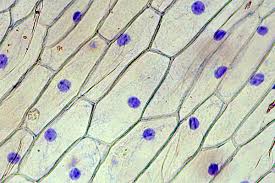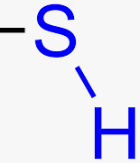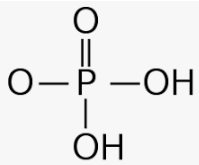Draw hydroxl

Carbohydrate
What is an ionic bond?
When the atoms do not share electrons.
What is the function of an enzyme?
To speed up chemical reactions
Is this a plant or animal cell?

Plant
Which function group is this:

Carboxyl
Cellulose, monosaccharides, disaccharides, and chitin are an example of.....
Carbohydrates
What is a covalent bond?
When the atoms share electrons
In our lab, was the potato or the hydrogen peroxide the enzyme?
Potato
What is the function of the nucleus?
'Control centre' of the cell.
Holds all the genetic information
Which is the only functional group that contains nitrogen (N)
Amino
Proteins are made out of
Amino acids
What is a hydrocarbon?
A carbon backbone with hydrogen's.
What are enzymes made of?
Proteins
What is the difference between the rough ER and the smooth ER?
Rough ER has ribosomes attached to it
Smooth ER does not
Draw the sulfhydryl functional group

Do saturated fats come from plants or animals?
Animals
What is the difference between alkane and alkene?
Alkane has a single bond
Alkene has a double bond
What does it mean if a enzyme is denatured?
It will no longer work.
What is the function of the cytoplasm?
Jelly like substance that fills the space between organelle. Acts as the 'hallway'
What functional group is this:

Phosphate group
This macromolecule is important in DNA
Nucleic Acids
Hydrophobic - does not dissolve in water (non-polar)
Hydophilic - dissolves in water (polar)
What is an example of how an enzyme can be denatured?
- Temperature
- Acid/Base
- Alcohol
- Heavy metal
- Electricity
Differentiate between chloroplasts and mitochondria.
Chloroplasts are only in plant cell. They are the location of photosynthesis.
Mitochondria are in plant and animal cells. They are responsible for cellular respiration and the production of ATP.